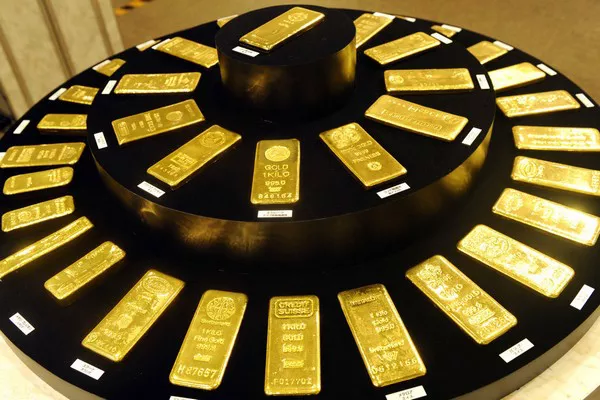Gold and oil are two of the most significant commodities in global markets. Both play crucial roles in the global economy and have complex interactions with financial markets. This article explores the connection between oil and gold futures, examining how these two commodities influence each other and their respective markets.
Understanding Gold Futures
Gold futures are contracts that obligate the buyer to purchase, and the seller to sell, a specific amount of gold at a predetermined price on a set date in the future. These contracts are traded on various exchanges, including the Chicago Mercantile Exchange (CME). Investors and traders use gold futures to hedge against economic uncertainty, inflation, and currency fluctuations.
Understanding Oil Futures
Oil futures are contracts that stipulate the delivery of a specific amount of crude oil at a future date for a predetermined price. Like gold futures, oil futures are traded on exchanges such as the CME and the Intercontinental Exchange (ICE). Oil futures are used by producers, consumers, and speculators to manage price risk and speculate on future price movements.
Historical Relationship Between Oil and Gold
Historically, gold and oil prices have had a significant correlation. This relationship can be attributed to several economic factors:
Inflation Hedge
Both gold and oil are considered inflation hedges. When inflation rises, the value of fiat currencies typically declines, leading investors to seek assets that preserve value. Gold is traditionally seen as a store of value, while oil prices often rise during inflationary periods due to increased production costs and higher demand for commodities.
Economic Uncertainty
During times of economic uncertainty or geopolitical tensions, both gold and oil prices can become volatile. Investors may flock to gold as a safe haven, while oil prices can fluctuate based on geopolitical events affecting supply and demand.
Currency Movements
Gold and oil are priced in U.S. dollars, so fluctuations in the value of the dollar can impact both markets. A weaker dollar can lead to higher prices for both commodities, while a stronger dollar can have the opposite effect.
The Influence of Oil Prices on Gold Futures
Inflation Impact
Rising oil prices often lead to increased costs for goods and services, contributing to higher inflation. As inflation accelerates, investors tend to turn to gold as a hedge. Therefore, higher oil prices can drive up demand for gold futures, leading to an increase in gold prices.
Economic Growth and Demand
Oil prices can influence economic growth, which in turn affects gold prices. For example, high oil prices can lead to increased production costs, reducing economic growth and potentially impacting gold demand. Conversely, low oil prices can stimulate economic growth, which may affect investor behavior towards gold.
Geopolitical Events
Geopolitical events impacting oil-producing regions can lead to volatility in both oil and gold markets. For instance, conflicts or political instability in oil-rich regions can disrupt oil supply, causing oil prices to spike. Investors might seek safety in gold during such periods, driving up gold futures prices.
The Influence of Gold Prices on Oil Futures
Safe-Haven Demand
When gold prices rise significantly due to increased safe-haven demand, it can signal broader economic or financial concerns. These concerns may lead to higher oil prices if the market anticipates that inflation or geopolitical risks will affect oil supply or demand.
Investment Flows
Large movements in gold futures can impact investment flows into other commodities, including oil. If gold prices rise sharply, investors may adjust their portfolios, affecting demand for oil futures and influencing oil prices.
Market Sentiment
Market sentiment plays a crucial role in both gold and oil futures. If rising gold prices signal investor anxiety about economic stability, it may also affect oil futures, as traders react to potential changes in economic conditions or inflation expectations.
Recent Trends and Market Dynamics
In recent years, the relationship between oil and gold futures has been influenced by various factors:
COVID-19 Pandemic
The COVID-19 pandemic caused unprecedented disruptions in global markets. Oil prices experienced significant declines due to reduced demand and supply chain issues, while gold prices soared as investors sought safe-haven assets. This divergence highlighted the complex interplay between these two commodities.
Geopolitical Tensions
Geopolitical tensions in regions such as the Middle East have impacted both oil and gold markets. For example, conflicts affecting oil production can drive up oil prices, while simultaneously increasing gold demand as investors seek stability.
Monetary Policy
Central bank policies and interest rates also affect both markets. Low interest rates and quantitative easing can lead to higher gold prices as investors seek non-yielding assets. Similarly, changes in monetary policy can influence oil demand and prices.
Trading Strategies Involving Oil and Gold Futures
Diversification
Traders and investors often use gold and oil futures to diversify their portfolios. By understanding the relationship between these commodities, they can hedge against risks and capitalize on market opportunities.
Hedging
Companies involved in industries sensitive to both oil and gold prices can use futures contracts to hedge against price fluctuations. For example, a gold mining company may hedge against rising oil prices, while an oil company might hedge against falling gold prices.
Speculation
Speculators may take positions in both oil and gold futures based on their expectations of price movements. By analyzing correlations and market trends, they can potentially profit from changes in the relationship between these commodities.
See also: What Is The Gold Futures Market?
Conclusion
The connection between oil and gold futures is multifaceted and influenced by a range of economic, geopolitical, and financial factors. Both commodities play significant roles in global markets, and their interaction can impact investment decisions and market dynamics.
Understanding the relationship between oil and gold futures is crucial for investors, traders, and companies involved in these markets. By analyzing how oil prices affect gold futures and vice versa, market participants can make more informed decisions and develop effective trading strategies.
As global markets continue to evolve, monitoring the interplay between oil and gold futures will remain essential for navigating the complexities of commodity trading and investment.

